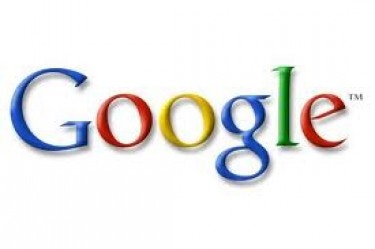Last month, I discussed why Waze was a valuable prize for Apple Inc. (NASDAQ:AAPL), Facebook Inc (NASDAQ:FB) and Google Inc (NASDAQ:GOOG). The Israeli online mapping company, which has 47 million active users, produces a popular “crowdsourced” map service, in which drivers update each other on road and weather conditions via mobile technology. Waze provides a more accurate picture of traffic problems than the green, yellow and red lines on major thoroughfares that Google Maps currently offers in certain countries.
Apple had wanted Waze for its mapping technology, after the embarrassing Apple Inc. (NASDAQ:AAPL) Maps debacle forced it to stick with Google Maps on iOS devices. Facebook nearly acquired Waze for both its mapping technology and social network, since Facebook Inc (NASDAQ:FB) still depends on Microsoft Corporation (NASDAQ:MSFT)‘s comparably clunkier Bing Maps for its localized results.
But in the end, it was Google Inc (NASDAQ:GOOG) that took Waze off the table, for $1.3 billion – higher than the $500 million and the $1 billion respectively offered by Apple Inc. (NASDAQ:AAPL) and Facebook Inc (NASDAQ:FB). Yet why did Google, which has arguably the most robust and popular map service in the world, need to vertically integrate a small mapping service like Waze at such a high price? That question has triggered a FTC antitrust investigation into Google’s true intentions, according to the Wall Street Journal. Let’s take a look at Google’s strategy behind this acquisition, and see if it’s in the best interest of the company’s shareholders.
Is Google the new Microsoft?
To better understand what Google Inc (NASDAQ:GOOG) is today, we need to compare it to its nemesis, Microsoft Corporation (NASDAQ:MSFT). In the 1980s and 1990s, Microsoft rose to dominate the home computer market the same way Google dominated mobile technology – through software.
Microsoft Corporation (NASDAQ:MSFT) spread its operating system, Windows, across the fragmented market of IBM clones, completely marginalizing Apple, which based its business on a proprietary operating system designed for its own hardware. Today, Google has unified the fragmented handset market together under its Android operating system, just as Microsoft Corporation (NASDAQ:MSFT) used Windows to unite PC manufacturers across the world.
By the late 1990s, however, Microsoft Corporation (NASDAQ:MSFT)’s dominance of multiple markets and technology incurred the wrath of the FTC. The FTC ruled that Microsoft should not have bundled its web browser, Internet Explorer, with its operating system, Windows, which throttled the market growth of competing web browsers such as Netscape and Opera. A similar ruling was made in 2007, when an EU court forced Microsoft to remove Windows Media Player as a bundled part of the operating system.
The invisible ceiling
Today, Google Inc (NASDAQ:GOOG) is headed straight for that invisible ceiling as well, even though the company loves to promote its “good guy” image with its catchy company mantra, “Don’t be evil.”
Google’s primary business is search. Android is merely a vehicle to deliver its bundled search engine and ecosystem to the maximum amount of users as possible, in order to maintain its wide lead over competitors such as Yahoo! Inc. (NASDAQ:YHOO) and Microsoft Corporation (NASDAQ:MSFT). The tactic is not that different from what Bill Gates attempted to do with Internet Explorer two decades ago.
In 2011, Google Inc (NASDAQ:GOOG) was cleared to acquire travel search engine ITA Software, which is the backbone search database for travel sites such as Orbitz and airlines such as AMR’s American Airlines, among other companies. Google brushed off accusations that the acquisition was anti-competitive, since it did not intend to sell airline tickets directly. However, Google’s plan was more subtle. It simply wanted its own search site, Google Flights, to be the first stop for travelers looking for the cheapest tickets, to expand its brand presence and reaffirm its position as the world’s default search engine.
All things considered, Google is an expert at building its competitive moat and ensuring that no competitor is ever able to breach its walls. That’s where Waze comes in.
The mobile mapping wars
Considering Google Inc (NASDAQ:GOOG)’s past tactics, it shouldn’t come as much of a surprise that the company would pay such a high price for Waze. By acquiring Waze, Google keeps it out of the hands of Apple and Facebook, which will keep the former dependent on its iOS service and the latter locked out and restricted to Bing Maps.
Over the past year, Apple has been searching for ways to rid its walled garden of Google’s presence. At first, it was with the rushed Apple Maps, which led drivers to non-existent cities and scenic drives along railroad tracks. Apple also introduced Siri as a means to bypass Google search, recently announcing that Bing would be Siri’s default search engine in iOS 7. If Apple acquired Waze, then it could rebuild its ailing Apple Maps application and integrate it with Siri for a “Google-free” experience.






